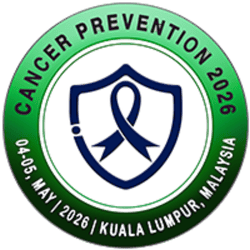Track: Molecular Oncology

Molecular oncology focuses on the study of genetic, epigenetic, and molecular mechanisms that drive cancer development, progression, and therapeutic resistance. This session explores advances in molecular biomarkers, targeted therapies, tumor signaling pathways, and novel diagnostic techniques that transform cancer prevention and treatment strategies. By integrating cancer screening, precision medicine, and innovative healthcare research, it emphasizes the significance of molecular insights in improving early detection, cancer risk reduction, and global cancer initiatives. The session encourages collaboration between researchers, clinicians, and industry experts to translate cutting-edge molecular discoveries into effective cancer prevention strategies and personalized oncology care.
Molecular Signaling Pathways in Cancer Progression
The complex signaling pathways—such as PI3K/AKT, MAPK, and JAK/STAT—that regulate tumor growth, invasion, and metastasis. Understanding these pathways informs targeted therapy development and enhances cancer prevention strategies across diverse tumor types.
Molecular Biomarkers for Early Detection and Prognosis
Molecular biomarkers are vital for predicting cancer risk, enabling early detection, and guiding treatment decisions. This sub-topic explores emerging biomarkers that improve diagnostic accuracy, inform precision medicine, and support preventive oncology initiatives worldwide.
Targeted Therapies and Personalized Molecular Treatment Approaches
This sub-topic examines the development of targeted therapies that inhibit specific molecular drivers of cancer. It emphasizes how genomic profiling and molecular diagnostics guide personalized treatment plans, improving patient survival outcomes and reducing unnecessary treatment toxicity.
Epigenetic Alterations and Their Role in Cancer Development
Epigenetic modifications such as DNA methylation and histone changes play a critical role in gene expression and tumor initiation. This sub-topic discusses their potential as biomarkers for cancer screening and as therapeutic targets for precision oncology care.
Resistance Mechanisms to Molecularly Targeted Therapies
Cancer cells often develop resistance to targeted therapies through molecular adaptations. This sub-topic investigates the genetic and epigenetic mechanisms underlying resistance and highlights strategies to overcome these barriers for more durable treatment responses.
Liquid Biopsies and Non-Invasive Molecular Diagnostics
Liquid biopsy technologies provide minimally invasive access to circulating tumor DNA, RNA, and exosomes. This sub-topic explores their role in early detection, disease monitoring, and guiding molecular oncology interventions to improve cancer risk reduction strategies.
Scientific Highlights
- Public Health & Cancer Awareness
- Cancer Prevention
- Screening & Early Detection
- Vaccination & Immunoprevention
- Environmental & Occupational Factors
- Complementary & Emerging Approaches
- Genetic & Personalized Prevention
- Cancer Biology and Genetics
- Cancer Immunology
- Molecular Oncology
- Hematology in Cancer
- Cancer Diagnosis and Therapeutic Approaches
- Oncology Research and Innovations
- Advanced Methods in Cancer Research
- Cancer Epidemiology and Prevention
- Future Trends in Prevention & Research
- Pediatric Oncology


